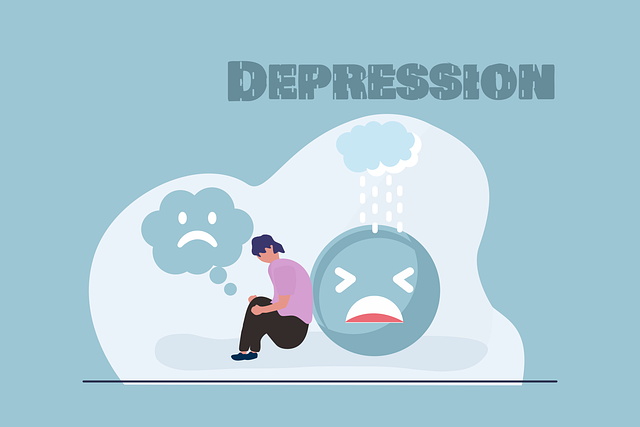Lone Tree Anger Management Therapy offers comprehensive stress management workshops that empower individuals and communities to navigate stress effectively. Combining self-awareness, breathing exercises, mindfulness, and social skills training, their interactive sessions foster resilience and self-care. By leveraging evidence-based anger management techniques and compassion cultivation practices, Lone Tree equips participants with emotional regulation tools while reducing mental illness stigma. Through dynamic content, personal narratives, and post-workshop resources, they ensure lasting impact, encouraging positive thinking and integration of new strategies into daily life.
Stress management workshops are gaining importance as people recognize the impact of chronic stress on their well-being. This article explores the necessity of such workshops, offering practical strategies for organizers. We delve into designing effective sessions, leveraging techniques from Lone Tree Anger Management Therapy to foster positive change. By providing engaging and transformative experiences, these workshops empower individuals to navigate life’s challenges with resilience. Discover how to facilitate meaningful discussions and equip participants with tools to manage stress holistically.
- Understanding Stress and Its Impact: Unveiling the Need for Workshops
- Designing Effective Stress Management Workshops: Strategies and Techniques
- The Role of Lone Tree Anger Management Therapy in Workshop Implementation
- Facilitating Change: Tips for Organizing Engaging and Transformative Sessions
Understanding Stress and Its Impact: Unveiling the Need for Workshops

Stress is an inevitable part of modern life, but understanding its nuances and impact is crucial for fostering mental wellness. The relentless pace of daily routines often leads to burnout prevention becoming a pressing concern. Lone Tree Anger Management Therapy recognizes this growing need and aims to address it through comprehensive workshops. These sessions are designed to help individuals navigate the complex landscape of stress, offering tools to manage and mitigate its effects on both personal and professional fronts.
By organizing such workshops, the therapy center contributes to the implementation of a robust community outreach program. They empower attendees with strategies to recognize stress triggers, develop resilience, and promote self-care practices. This proactive approach not only benefits individuals but also has the potential to positively impact communities by fostering healthier, more resilient environments where mental wellness is prioritized.
Designing Effective Stress Management Workshops: Strategies and Techniques

Designing effective stress management workshops requires a thoughtful approach to cater to diverse participant needs. At Lone Tree Anger Management Therapy, we emphasize interactive and engaging strategies. These include incorporating Self-Awareness Exercises to help individuals recognize their triggers and develop coping mechanisms. Facilitators should employ a mix of techniques such as breathing exercises, mindfulness practices, and Social Skills Training to create a well-rounded experience.
Workshops should be structured with clear objectives, allowing participants to learn, practice, and reflect. By combining theoretical knowledge with practical activities, facilitators enhance learning retention. Incorporating interactive elements like role-playing scenarios and group discussions facilitates peer support and fosters a sense of community. This collaborative approach ensures that attendees leave with tangible tools to manage stress effectively in their daily lives.
The Role of Lone Tree Anger Management Therapy in Workshop Implementation

Lone Tree Anger Management Therapy plays a pivotal role in organizing and enhancing stress management workshops. Their expertise in anger management offers a unique perspective on emotional regulation, which is crucial for participants to navigate stressful situations effectively. By incorporating evidence-based techniques, the therapy provides practical tools to manage and reduce anger, thereby improving overall mental wellness.
Incorporating Compassion Cultivation Practices into these workshops can further foster an environment of understanding and self-care, which is essential in combating Mental Illness Stigma Reduction Efforts. Lone Tree’s approach ensures that participants not only learn to manage stress but also develop empathy and compassion for themselves and others, contributing to positive Mental Wellness Coaching Programs Development.
Facilitating Change: Tips for Organizing Engaging and Transformative Sessions

Organizing stress management workshops that facilitate lasting change requires a thoughtful and engaging approach. To create transformative sessions, consider blending interactive activities, real-world examples, and personal narratives. This blend helps participants connect with the material on a deeper level, making it more memorable and applicable to their daily lives. For instance, incorporating exercises like mindful breathing or stress reduction techniques through role-playing scenarios can make the workshops dynamic and impactful.
Additionally, leveraging resources like the Mental Wellness Podcast Series Production or developing in-house Mental Wellness Coaching Programs can enrich the workshop experience. These initiatives not only provide diverse perspectives but also offer continuous support post-workshop. Encouraging positive thinking and mental wellness is key to helping participants integrate new strategies into their routines. Just as Lone Tree Anger Management Therapy focuses on individual growth, well-structured workshops can be a game-changer in fostering effective stress management skills.
Stress management workshops, enhanced by the expertise of professionals like Lone Tree Anger Management Therapy, play a pivotal role in empowering individuals to navigate life’s challenges. By combining understanding stress, effective strategies, and engaging facilitation techniques, these workshops offer transformative experiences. Through practical insights and supportive environments, participants gain valuable tools to mitigate stress, improve well-being, and foster resilience. Incorporating such workshops into personal or organizational routines can significantly contribute to a healthier, more productive lifestyle.














